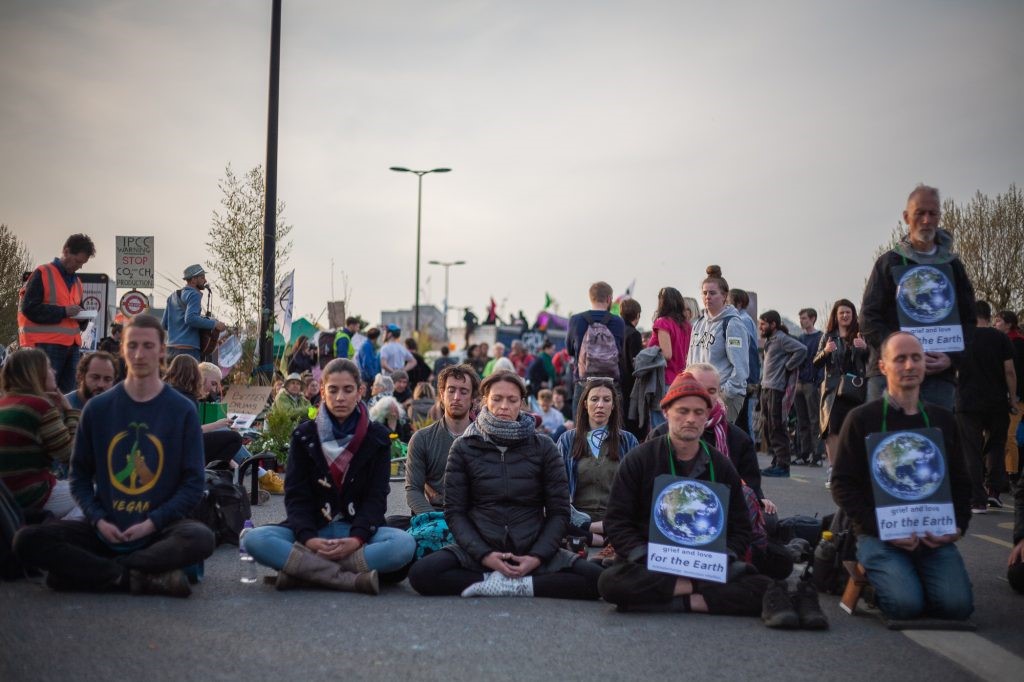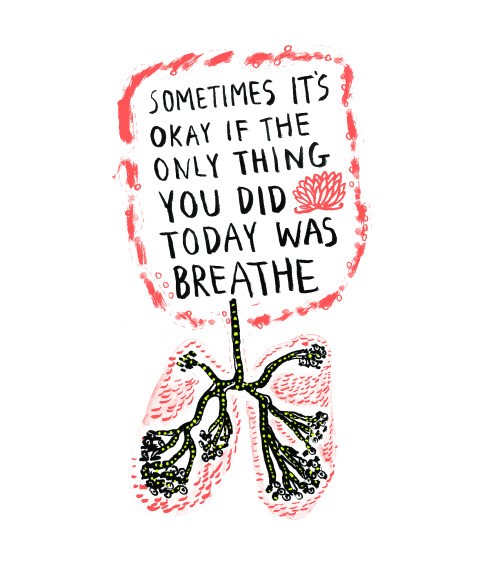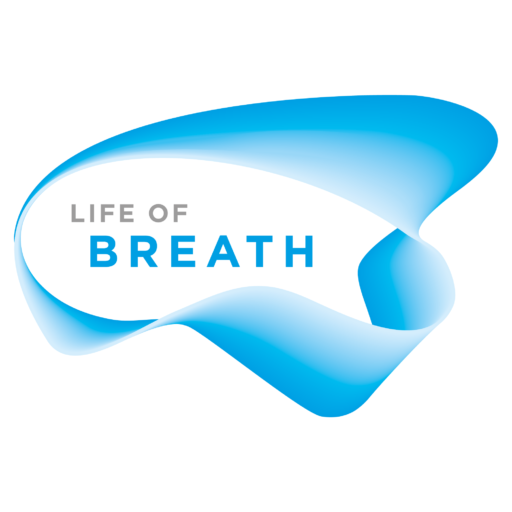(Mc)Mindfulness and the politics of breath
Chloe Asker, PhD student at the University of Exeter, considers the quiet activism of ‘just’ breathing.
Over the course of my PhD being researched and written there were several mass rebellions that brought central London to a stand-still. These rebellions were organised and enacted by the activist group, Extinction Rebellion. A poignant moment for me was when the protestors, during their occupation of Westminster Bridge, joined together for a collective moment of contemplation, reflection, and meditation. They were guided through a mindfulness mediation that explored the collective ‘togetherness’ of the breath that unites us, investigated through the qualities of compassion and care.
We all share the air
Feel our togetherness as we breathe
That we’re actually here in unity
In the great loving expression of unity, compassion, wisdom, truth and care
(Transcription of a YouTube video uploaded by ‘Campfire Convention’, 2018 )

The breath is political, and here it is politicised – connecting our seemingly individual, bounded bodies to the Earth and its changes and rhythms. As Thich Nhat Hanh describes, in his statement to the United Nations Framework Convention on Climate Change (UNFCCC), ‘breathing with mindfulness and contemplating your body, you realise that you are the Earth. You realise that your consciousness is also the consciousness of the Earth. Look around you–what you see is not your environment, it is you.’
However, across the critical social sciences and humanities, mindfulness has been interrogated and analysed as one of the central practices that exist in the neoliberal therapeutic cultures of late modernity. The term ‘McMindfulness’ describes the contemporary mindfulness zeitgeist, in which mindfulness is packaged and sold as a cure to the ‘noxious influences of capitalism’ (Purser 2019, 19) which produce stress, anxiety and depression. But, instead, it acts as a form of ‘cruel optimism’ (Berlant 2011). In the McMindfulness argument, mindfulness is understood to individualise and de-politicise mental health conditions, and in doing so you become the cause of your stress, and in order to cope you need to manage and change yourself. This logic ignores the myriad structural forces that can produce depression, anxiety and ill-health. In this way, mindfulness functions as another regulatory technology that acts ‘as a kind of invisible barrier constraining thought and action’ (Fisher 2009, 16).
In my work I have grappled with the McMindfulness argument, having witnessed and experienced mindfulness in a different way. Part of this comes from my lived experiences of mindfulness (on 8-week mindfulness courses and retreats) and an embodied conscious cultivation of the breath. By following the rhythms of the breath we can begin to undo fixed boundaries between self and world, mind and body, inside and outside, nature and culture, and so on. To cultivate the conscious breath through mindfulness is not to ‘turn away from the questions of the social and political’ (Engelmann 2015, 431). But is instead a form of embodied politics and ethics which can open us out to the ways we are intrinsically imbricated with other human and nonhuman others – particularly in the phase of a ‘mass extinction’ (Extinction Rebellion n.d.), or ‘biological annihilation’ (Ceballos, Ehrlich, and Dirzo 2017).
Turning towards the breath becomes vital in an era of environmental destruction. In which the very air and oxygen we depend on to breathe is being threatened by the rapid decline of coral populations by acidification, dredging, and pollution of the oceans (Loria 2018). Moreover, the right to breathe clean, safe, non-polluted air is in jeopardy – particularly amongst minority communities and people of colour. For instance, in Noxious New York, Sze (2006) charts the environmental justice movement in New York City that has been driven by the high rates of asthma in minority communities. Activists argue that this inequality is a form of environmental racism. Cleary breathing is not equal. The access to safe air to breath is a contemporary political and ethical trouble.
There is also a political and hopeful aspiration to have the space to breathe amongst everyday violent conditions that these forces perpetuate. The phrase ‘I can’t breathe’, which was uttered by Eric Garner in his last moments, became the pivotal moment for the Black Lives Matter movement in the United States (Lowery 2019). It was both a literal description of his in-ability to breathe due to the violent nature of his arrest. But, the words ‘I can’t breathe’ also ignited something more, speaking in a metaphorical sense to the challenges and violences. Black men face in a hostile environment where their very ability to breathe freely is being prevented by the continued denial of their civil rights (Aymer 2016).
Along with the enclosing danger of the climate emergency that is disproportionately affecting communities of colour, the ability to breathe safely is also threatened by the very polluted air that is in/exhaled. In this context, ‘I can’t breathe’ is thus both an issue of white supremacy and environmental destruction. And so, the aspiration to breathe freely is a political precedent:
‘I think the struggle for a bearable life is the struggle for queers to have space to breathe. Having space to breathe, or being able to breathe freely […] is an aspiration. With breath comes imagination. With breath comes possibility. If queer politics is about freedom, it might simply mean the freedom to breathe.’
(Ahmed 2010, 120)
However, by consciously turning towards the breath we might begin to realise an ethical potential or opening. One that widens witnessing beyond the human (Engelmann 2015) linking ourselves to the environment; and as the cultivation of a specific force or energy that is a political act, or ‘perpetual choice’ (Skof and Berndtson 2018). Coming to the breath can be a radical refusal of the forces of neoliberal governmentality and white supremacy that ingrain a Protestant work ethic and 24/7 culture (Crary 2014). For some, being in stillness and slowness through the breath is a form of embodied politics that works to disrupt the ‘cult of speed’ (Honore 2010, 3) – the very pace that capitalism demands. As ultimately, all you have to do is breathe.
Having the freedom to breathe might involve cultivating conscious of respiration through embodied breath-full pedagogies. Shahjahan (2015) argues that critical embodied pedagogies, such as mindfulness, can be used to decolonise the rhythm of our bodies by slowing down ‘to access alternative sources of knowledge, including embodied ways of knowing’ (p.499). Critical forms of mindfulness, for example, are working to lean into the discomfort of white fragility and supremacy (e.g. Mindfulness for the People), and to decolonise forms of ‘cognitive imperialism’ ingrained into neural pathways of the brain (e.g. Indigenous Mindfulness).
Although my work focuses on arguably the McMindful elements of the mindfulness movement, I have found there is more to even these seemingly de-political therapeutic cultures. In my thesis, I argue that mindfulness cultivates a form of quiet activism and ethics through enchanting encounters with non-humans that provoke reflection and action concerning environmental vulnerability. I have found that through our encounter with the conscious breath we gain insight. One of these insights is that there is more to mindfulness than McMindfulness.
References
- Abrahams, Matthew. 2019. “The Buddhists of Extinction Rebellion.” Tricycle: The Buddhist Review. September 16, 2019. https://tricycle.org/trikedaily/extinction-rebellion-buddhists/.
- Ahmed, Sara. 2010. The Promise of Happiness. Durham [N.C.]: Duke University Press.
- Aymer, Samuel R. 2016. “‘I Can’t Breathe’: A Case Study—Helping Black Men Cope with Race-Related Trauma Stemming from Police Killing and Brutality.” Journal of Human Behavior in the Social Environment 26 (3–4): 367–76. https://doi.org/10.1080/10911359.2015.1132828.
- Berlant, L. 2011. Cruel Optimism. Duke University Press.
- Ceballos, Gerardo, Paul R. Ehrlich, and Rodolfo Dirzo. 2017. “Biological Annihilation via the Ongoing Sixth Mass Extinction Signaled by Vertebrate Population Losses and Declines.” Proceedings of the National Academy of Sciences 114 (30): E6089–96. https://doi.org/10.1073/pnas.1704949114.
- Crary, Jonathan. 2014. 24/7: Late Capitalism and the Ends of Sleep. London: Verso Books.
- Engelmann, Sasha. 2015. “Toward a Poetics of Air: Sequencing and Surfacing Breath.” Transactions of the Institute of British Geographers 40 (3): 430–44. https://doi.org/10.1111/tran.12084.
- Extinction Rebellion. n.d. “The Emergency.” Extinction Rebellion (blog). Accessed January 27, 2020. https://rebellion.earth/the-truth/the-emergency/.
- Fisher, Mark. 2009. Capitalist Realism: Is There No Alternative? John Hunt Publishing.
- Honore, Carl. 2010. In Praise of Slow: How a Worldwide Movement Is Challenging the Cult of Speed. Hachette UK.
- Loria, Kevin. 2018. “The Quest to Save the Fragile Reefs Earth’s Oceans Depend On.” Business Insider. April 12, 2018. https://www.businessinsider.com/coral-reef-bleaching-ocean-acidification-solutions-2018-4?r=US&IR=T.
- Lowery, Wesley. 2019. “‘I Can’t Breathe’: Five Years after Eric Garner Died in Struggle with New York Police, Resolution Still Elusive.” Washington Post, June 14, 2019. https://www.washingtonpost.com/national/i-cant-breathe-five-years-after-eric-garner-died-in-struggle-with-new-york-police-resolution-still-elusive/2019/06/13/23d7fad8-78f5-11e9-bd25-c989555e7766_story.html.
- Purser, Ron. 2019. McMindfulness: How Mindfulness Became the New Capitalist Spirituality. Watkins Media.
- Shahjahan, Riyad A. 2015. “Being ‘Lazy’ and Slowing Down: Toward Decolonizing Time, Our Body, and Pedagogy.” Educational Philosophy and Theory 47 (5): 488–501. https://doi.org/10.1080/00131857.2014.880645.
- Skof, Lenart, and Petri Berndtson, eds. 2018. Atmospheres of Breathing. Albany, New York: State University of New York.
- Sze, Julie. 2006. Noxious New York: The Racial Politics of Urban Health and Environmental Justice. MIT Press.




